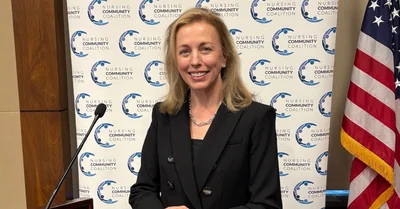In August of this year, the Federal Trade Commission (FTC) announced that they were exploring rules to crack down on harmful commercial surveillance and lax data security. In what the FTC called its Advance Notice of Proposed Rulemaking (ANPR), the agency sought public comments on the harms of businesses collecting, analyzing and monetizing information about people. NetChoice, a trade association of leading internet businesses, raised concerns not about cracking down on commercial surveillance and data security, but that the FTC is not the proper government body to implement these rules and/or regulations.
NetChoice’s objections to the FTC engaging in data privacy rule-making are based on lack of congressional oversight and ability given to the agency. NetChoice believes that some of the practices the FTC has deemed “unfair” is not the case for all and actually provides substantial consumer benefit in certain market areas.
“While we welcome the opportunity to provide feedback on the important issue of data privacy and security, we also must highlight concerns that the agency has overstepped its regulatory authority,” NetChoice Policy Counsel Jennifer Huddleston said. “The FTC fails to meet the criteria necessary under its limited rulemaking authority. Many of the practices identified so far by the agency have substantial benefits for consumers.”
“In fact, with legislation currently pending in Congress, the FTC should really wait for Congress to give guidance and authority around this issue,” Huddleston added.
From NetChoice’s perspective, the FTC is stepping outside the scope of its authority to intervene in subjective preferences around the idea of privacy rather than sticking to its current prerogative; using its authority when there are clear harms that meet existing legal standards.
According to NetChoice’s comment for the record, Congress is currently debating potential data privacy legislation and has engaged in consideration of the appropriate agency delegations. If the FTC were to act prior to such a delegation, it would certainly face legal challenges particularly in the wake of West Virginia v. EPA.
The FTC’s ANPR, provided on its government website, points out that the business of commercial surveillance can be a large incentive for companies to overstep their bounds in the data they collect.
“Firms now collect personal data on individuals at a massive scale and in a stunning array of contexts,” FTC Chair Lina M. Khan said. “The growing digitization of our economy—coupled with business models that can incentivize endless hoovering up of sensitive user data and a vast expansion of how this data is used—means that potentially unlawful practices may be prevalent. Our goal today is to begin building a robust public record to inform whether the FTC should issue rules to address commercial surveillance and data security practices and what those rules should potentially look like.”









